The hidden menace of substance abuse is unraveling the fabric of our workplaces, threatening the core of team cohesion and operational safety. According to the 2020 report by the Bureau of Labor Statistics, a staggering 388 out of 4,786 fatal work injuries that year were attributed to accidental overdoses from the consumption of non-medical substances within the workplace. It introduces unpredictable work quality, undermining trust and reliability among team members, essential for a thriving organizational culture.
Diminished focus and engagement due to substance abuse not only hinder individual productivity but also establish a ripple effect across the entire team. When team members struggle to maintain their focus and engagement, the natural flow of ideas and creative energy vital for driving innovation and advancement is disturbed. This can lead to missed opportunities and a stagnation of growth within the organization. Additionally, erratic work patterns and decreased productivity stemming from substance abuse can make it challenging for the team to respond effectively to new challenges, causing momentum to come to a grinding halt.
Furthermore, the increase in absenteeism resulting from substance abuse fractures the synergy within the team. Communication and collaboration, which are crucial for achieving collective goals, are hindered when team members are frequently absent or unable to contribute effectively. This breakdown in teamwork not only impacts the overall productivity of the team but also erodes trust and cohesion, essential elements for a thriving workplace culture. It is imperative to address these issues proactively to ensure the continued success and well-being of the organization.
Carelessness and poor judgment induced by substance abuse endanger strategic decision-making and morale, with potentially long-lasting repercussions. Most critically, substance abuse compromises personal and collective safety, especially in environments requiring precision with machinery or vehicles, escalating the risk of accidents and injuries. Addressing this crisis demands a united, empathetic approach, focusing on support and rehabilitation to foster a resilient, safe, and supportive workplace culture.
How can Workplace Safety Screenings help? Incorporating Workplace Safety Screenings into your organization's regular practices can help prevent accidents, injuries, and disruptions caused by substance abuse. By investing in the well-being and safety of employees, companies can cultivate a resilient, safe, and cohesive workplace culture that fosters productivity, trust, and overall success.

.png?width=500&height=500&name=Blue%20and%20White%20Classic%20Shield%20Financial%20with%20Star%20Logo%20Design%20(1).png)


